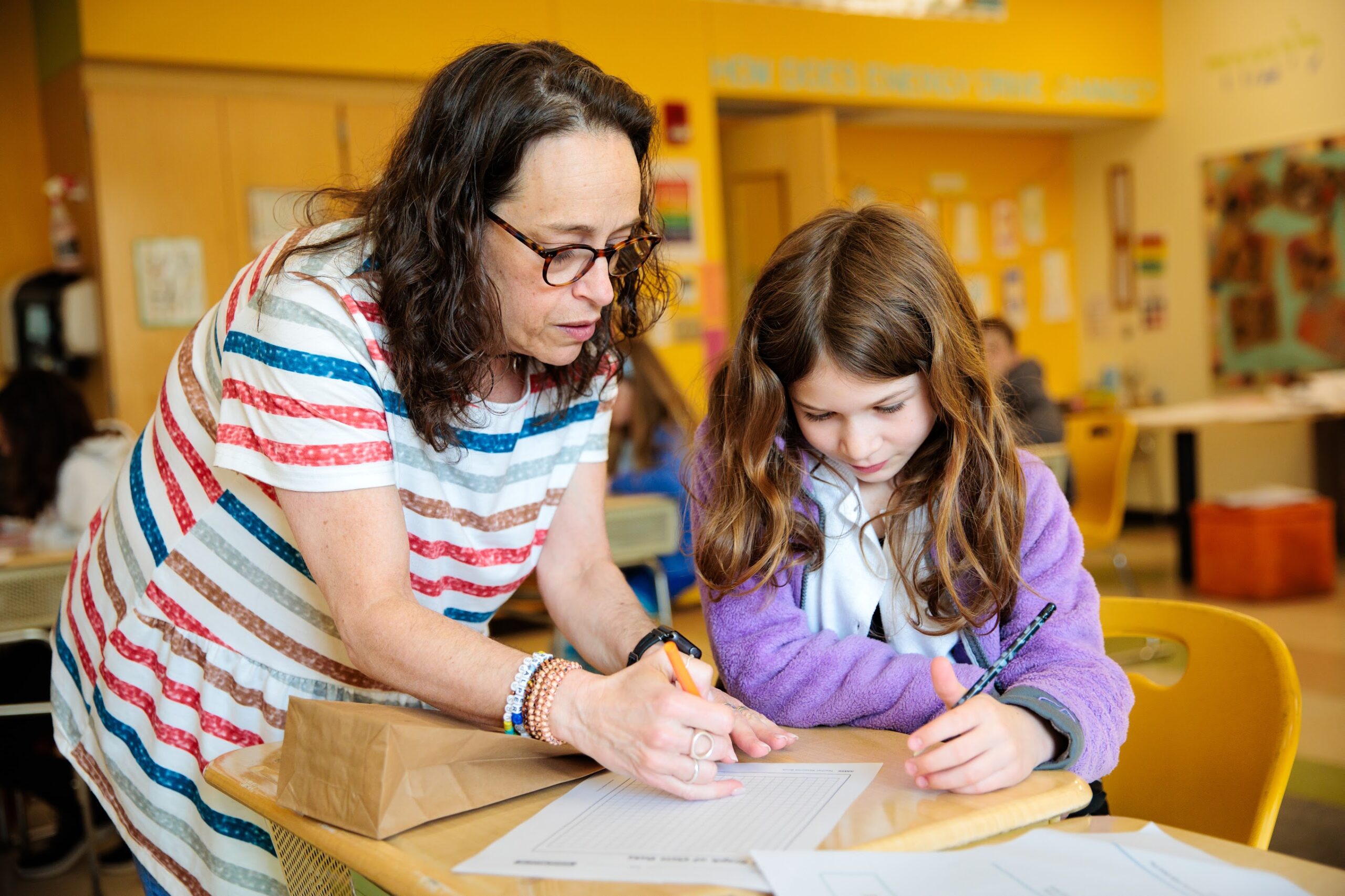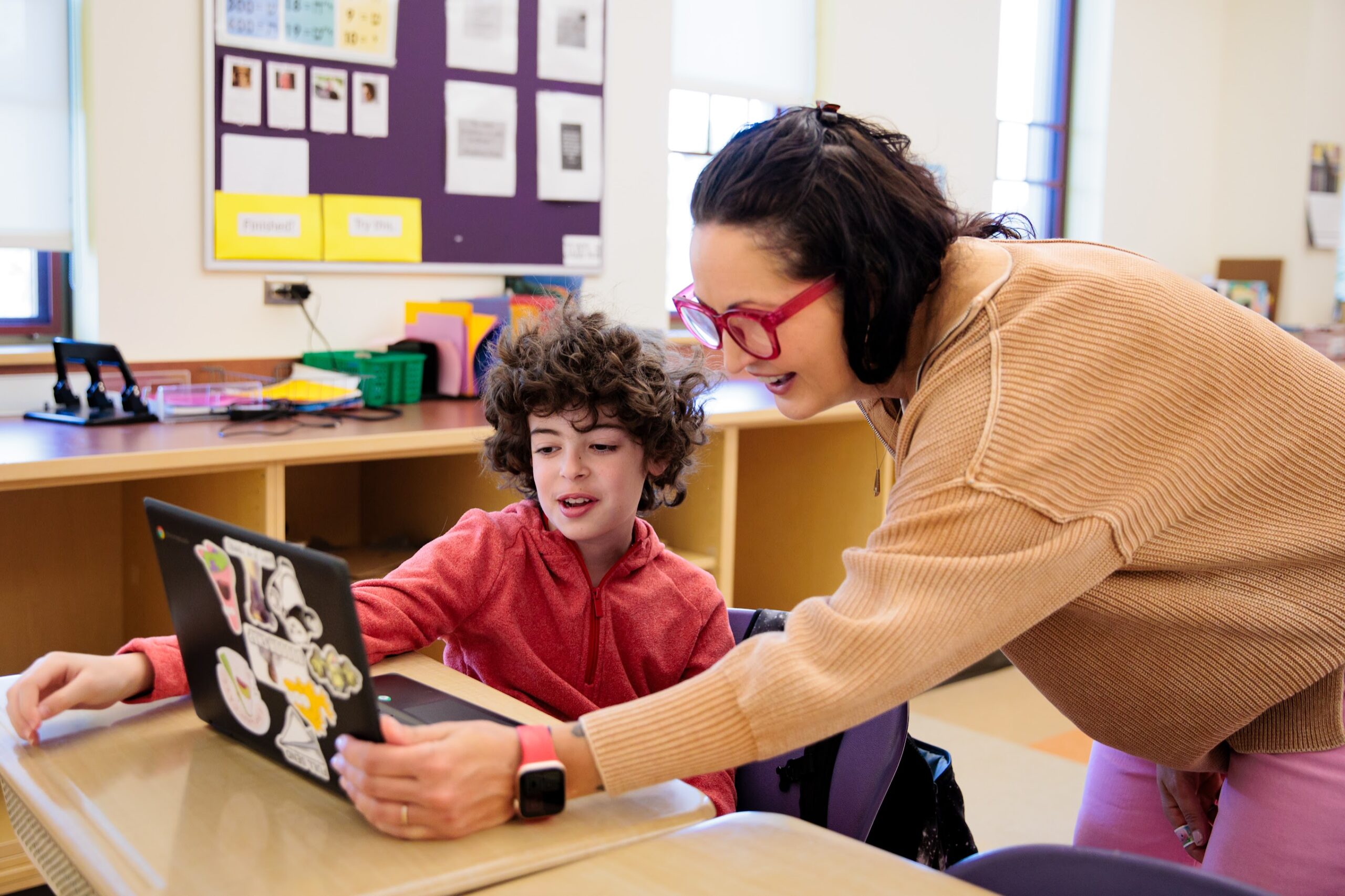EDUCATIONAL PHILOSOPHY
Rashi’s Educational Philosophy
If you want people to value something, get them to participate in creating it. Give them a challenge and give them responsibility. The effort we put into something does not just change the object: it changes us. The greater the labour, the greater the love for what we have made.”
– Rabbi Jonathan Sacks
In accordance with our mission, and with the goal for our graduates to become kind Jewish leaders and change agents, The Rashi School’s academic program offers students a unique educational experience:
- We take a child-centered, skills-based approach rooted in Jewish values. We model and cultivate innate curiosity and the capacity to observe, discover, create, collaborate and communicate, and we foster a continuous desire to grow as learners and as people. Rashi students are pushed to take academic risks.
- Through both faculty- and student-led pedagogies, Rashi students become global problem-solvers. They practice critical thinking and analytical skills through interdisciplinary learning, and they make connections between classroom learning and the world. Our students regularly interact with organizations, professionals, children and adults outside of their community, an intentional practice that helps develop listening skills, empathy, a sense of social justice and deep caring for the world, and a kind Jewish spirit connecting acquired knowledge to timely and relevant global issues. In Reform Judaism, this is called Tikkun Olam: repairing the world.
- From Pre-Kindergarten to Grade 8, each grade has its own essential question or theme. These help us model and practice making interdisciplinary connections, which in turn allow our students to embrace the complexity and ambiguity of the world around them.
- Rashi prides itself on building a strong sense of community among students, faculty, staff, parents and alumni. Students at Rashi are trusted, supported and challenged and encouraged to interact with classmates and students across the grades. Rashi develops a strong relationship with alumni, who often return to Rashi to interact with current students and share their knowledge, perspectives and journeys.
- From their first moment at Rashi, students’ explore, embrace and strengthen their Jewish identity—in whatever ways personally resonate with them—as well as their connection to and deep knowledge about Israel. Jewish Studies and connection to Israel are embedded in every subject, and in every civic action and celebration at the school.
In their formative years, children learn to understand and question the world around them through observation, exploration, making connections, and inquiry. Learning is hands-on, not only in the classroom and in our Kol-lab makerspace, but on our 162-acre campus—with the Charles River, walking trails, a pond and vernal pool right in our own backyard. Our caring, supportive environment fosters strong connections among classmates, across grades, and between students and teachers.
The Lower School comprises Grades Pre-Kindergarten through 5. This is the time when students acquire traditional academic skills, the building blocks of learning, like writing, research, and presentation. From an early age, Rashi students also develop 21st century skills such as critical and analytical thinking, collaboration, data retrieval and analysis, computational thinking, media literacy, and public speaking—the foundations necessary to thrive in Middle School. As they mature, students explore increasingly complex and abstract concepts, simultaneously expanding their independence as well as personal, social and academic responsibility.
Rashi’s Middle School comprises Grades 6-8. Grade 6 is a common entry point, with additional students joining in Grade 7 and 8. Guided by faculty who are not only experts in teaching but deeply passionate about their subject matter, Middle Schoolers engage in a rigorous academic program. Traditional academic and 21st century skills are reinforced, supplemented by more complex skills like analytical writing, close textual analysis, multiple modes of presentation, public speaking, civil and productive discourse, debate and more. There is an increased emphasis on applications of information synthesis, data retrieval and analysis, computational thinking, and media literacy. Students in Grade 6, 7 and 8 take on progressively more complex capstone projects that involve multidisciplinary, project-based learning. Capstones cultivate student voice and identity; important planning, execution, and communication skills are developed. Rashi students graduate with a robust toolkit that will enable them to thrive in high school and beyond.



